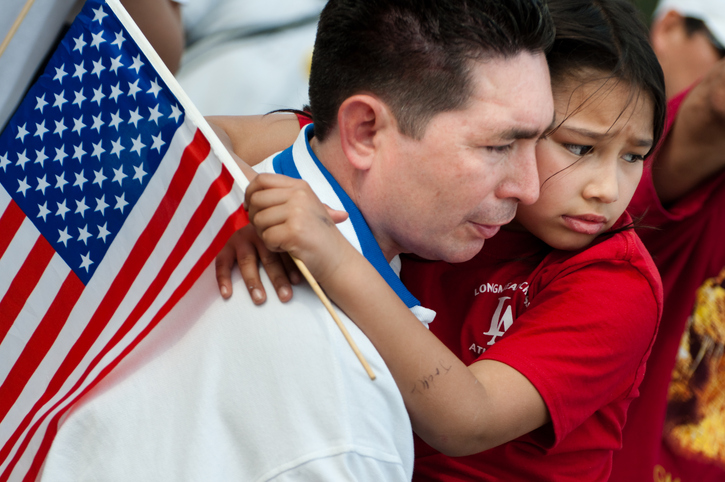Quick Answer:
No — not yet with certainty.
As of November 1, 2025, the U.S. Department of Labor (DOL) has announced a partial resumption of application processing, but top immigration law firms and professional associations report that Labor Condition Applications (LCAs) for H-1B, H-1B1, and E-3 appear to remain suspended or paused.
Until DOL confirms otherwise, employers and foreign nationals should assume new LCA filings cannot yet be reliably submitted or certified.
1. What’s Happening Now
On October 31, 2025, the DOL issued a notice that its Office of Foreign Labor Certification (OFLC) had resumed application processing after the government shutdown, and that the FLAG system was again accessible. The DOL has resumed processing all foreign labor applications, including those for H-1B visas. Various processes, such as LCA certification and prevailing wage determination, are affected by the shutdown and the resumption of application processing. (DOL Announcement)
However, some law-firm analyses clarify that this resumption does not appear to include LCAs required for H-1B, H-1B1, or E-3 filings. Instead, it primarily covers PERM (permanent labor certification) and temporary programs such as H-2A and H-2B. Cap subject employment, including H-1B positions subject to the annual quota, is directly impacted by the pause in LCA processing. Due to the recent shutdown, a backlog may exist, and processing could take slightly longer than usual. Processing times for LCAs and related processes may be extended, as delays in administrative workflows can affect the overall timeline for obtaining H-1B status. (Fragomen Insight)
2. Expert Commentary
- Fragomen: “The agency’s plan does not appear to include processing LCAs for the H-1B, E-3, and H-1B1 programs at this time.”
(Fragomen Insight) - RNLawGroup: “The DOL cannot process LCAs, prevailing wage determinations (PWD), or PERM filings.” (written before October 31, 2025 DOL announcement)
(RNLawGroup Update) - NatLawReview: “H-1B and other LCA-dependent filings are delayed until the FLAG system is restored; deadlines for LCAs may be tolled.” (written before October 31, 2025 DOL announcement)
(NatLawReview Summary)
These consistent statements from national law firms indicate that LCA processing itself remains unavailable.
3. Current Status Summary
| Program | Status | Notes |
|---|---|---|
| PERM (Permanent Labor Certification) | ✅ Resumed | Processing restarted gradually |
| H-2A / H-2B (Temporary Farm & Non-Farm) | ✅ Resumed | SeasonalJobs.dol.gov restored |
| LCA (H-1B / H-1B1 / E-3) | ❌ Still Paused | No public confirmation of resumption |
DOL’s Foreign Labor Certification Homepage remains active, but no announcement explicitly states that LCA submissions are being accepted or certified. USCIS continued to process H-1B petitions during the shutdown but could not complete them without a certified LCA.
4. Why LCAs Matter
The Labor Condition Application (Form ETA-9035/9035E) is a critical part of every H-1B, H-1B1, and E-3 visa petition. The H-1B visa program allows employers to temporarily employ foreign workers in the U.S. in specialty occupations or as fashion models of distinguished merit and ability. The visa is available for specialty occupation positions that require specialized knowledge and at least a bachelor’s degree or higher education in a relevant field. Theoretical and practical application of specialized knowledge is a key requirement for qualifying as a specialty occupation under H-1B rules.
Employers must file and obtain certification of an LCA through DOL’s FLAG Portal before filing the H-1B petition with U.S. Citizenship and Immigration Services (USCIS). Only certified LCAs, once approved by the Department of Labor, allow the employer to file an H-1B petition on behalf of a prospective employee. In the H-1B process, the employer must attest in the Labor Condition Application (LCA) that they are offering the foreign worker the prevailing wage or higher for the position. The employer must also provide working conditions and pay the prevailing wage as determined for the specific geographic area of intended employment. The prevailing wage determination process ensures that employees in the same occupation and geographic area are paid fairly. (USCIS H-1B Program Page)
Without a certified LCA: The Labor Condition Application (LCA) must be submitted electronically through the FLAG system before an employer can sponsor a foreign national under the H-1B visa. The employer acts on behalf of the foreign worker, and the prospective employee cannot begin working until both the LCA and H-1B petition are approved.
- Employers cannot file a new H-1B or change-of-employer petition;
- USCIS may reject or deny any filing lacking a certified LCA;
- Workers relying on timely H-1B transfers risk falling out of status. LCAs are generally processed by the Department of Labor within 7 to 10 business days, but this may be longer during peak filing seasons.
When discussing educational requirements, it is important to note that a bachelor’s degree or higher is required for H-1B eligibility, and a master’s degree or higher from a U.S. institution of higher education may make the applicant eligible for certain exemptions. Education credentials are a key factor in determining eligibility for specialty occupation positions.
5. Implications for Employers and Workers
- Employers cannot file new H-1B petitions requiring LCAs until the DOL resumes certifications.
- Planned start dates, transfers, or extensions may need to be postponed.
- Employers should keep LCA filings ready (with FEIN verification, accurate worksite addresses, and prevailing wage documentation) so they can file immediately when processing resumes.
- Employees should be informed about the status of LCA processing and any changes to their employment start dates.
- Foreign nationals in the 60-day grace period after job loss should consider filing Form I-539 to maintain lawful status while awaiting LCA availability. Nonimmigrant workers affected by the pause may need to consider their options, including filing for a change of status or waiting for next steps. (USCIS I-539)
If you wish to change employers, you must wait until LCA processing resumes before a new petition can be filed to maintain H-1B status legally.
Next steps: Once LCA processing resumes, employers and nonimmigrant workers should promptly file H-1B petitions, monitor application status, and ensure all required documentation is up to date. Employers should also communicate any updates to their employees throughout the process.
6. Strategy for H-1B Workers in the 60-Day Grace Period
When an H-1B worker loses employment, they typically have a 60-day discretionary grace period (or until I-94 expiration, whichever is shorter) to file a new petition, change status, or depart the U.S.
(USCIS Policy Manual, Vol. 2, Pt. M, Ch. 9)
Bridge Strategy (with counsel):
- Before the 60 days end, file Form I-539 to change to B-2 visitor or another valid non-work status.
- Once DOL resumes LCA certification, the new employer can file an H-1B petition (Form I-129) requesting a change back to H-1B status.
- Consider premium processing for the I-129 once the LCA is certified.
Cautions:
- The 60-day grace period is discretionary; USCIS may shorten or deny it.
- B-2 status does not authorize employment.
- Document all attempts to file and evidence of the shutdown; these may support late-filing relief based on “extraordinary circumstances.”
7. Extraordinary Circumstances for Late H-1B Filings During Government Shutdowns
When a federal government shutdown prevents employers from filing H-1B petitions on time — particularly because the U.S. Department of Labor (DOL) cannot process Labor Condition Applications (LCAs) through its FLAG system — the U.S. Citizenship and Immigration Services (USCIS) has confirmed that such delays may qualify as “extraordinary circumstances beyond the petitioner’s control.” Each fiscal year, the H-1B cap limits the number of new petitions that can be approved, but certain employers, such as related nonprofit entities—including universities, nonprofit research organizations, and government research organizations—are exempt from the H-1B cap and can file petitions at any time during the fiscal year without being subject to the annual numerical limitations.
A. Official USCIS H-1B Page — Shutdown Guidance (2025 Update)
In a recent update to its H-1B Specialty Occupations page, USCIS explicitly addressed the impact of the 2025 government shutdown on petitioners’ ability to obtain required DOL documentation:
“We recognize, however, that the shutdown may affect a petitioner’s ability to get required documentation (such as a labor condition application or a temporary labor certification from the U.S. Department of Labor), which may delay their ability to file Form I-129 or Form I-129CW.
If an H-1B, H-2A, H-2B, or CW-1 petitioner meets all other applicable requirements and submits evidence establishing that the primary reason they did not timely file an extension of stay or change of status request was due to the government shutdown, we will consider the government shutdown an ‘extraordinary circumstance beyond the petitioner’s control’ when we determine whether to excuse their failure to timely file the extension of stay or change-of-status request.”
— USCIS H-1B Specialty Occupations Page
This statement — published directly on USCIS’s main H-1B portal — confirms that shutdown-related LCA unavailability is a recognized extraordinary circumstance that may justify late-filed H-1B petitions.
B. USCIS Policy Manual — Extraordinary Circumstances Exception
The same principle is codified in the USCIS Policy Manual, Volume 2, Part A, Chapter 4, which governs extensions of stay and changes of status. USCIS normally requires petitions to be filed before the beneficiary’s authorized stay expires, but provides an explicit discretionary exception:
“USCIS may excuse the failure to file before the period of authorized stay expired where the requester demonstrates that:
• The delay was due to extraordinary circumstances beyond the person’s control;
• The length of the delay was commensurate with the circumstances;
• The person has not otherwise violated their nonimmigrant status;
• The person remains a bona fide nonimmigrant; and
• The person is not the subject of removal or deportation proceedings.”
— USCIS Policy Manual: Vol. 2, Pt. A, Ch. 4
The Policy Manual specifically lists one example directly relevant here:
“Where the primary reason for the late filing is the inability to obtain a certified Labor Condition Application or temporary labor certification due to a lapse in government funding supporting those adjudications.”
— USCIS Policy Manual: Vol. 2, Pt. A, Ch. 4 (Extraordinary Circumstances Example)
C. Practical Impact for Employers and H-1B Workers
Under these two USCIS authorities — the public H-1B page and the Policy Manual — employers and workers may seek relief if their late filing was caused by DOL’s inability to process LCAs due to a shutdown. The federal government has an annual cap of 65,000 H-1B visas, with an additional 20,000 for those holding master’s degrees or higher from U.S. institutions. To strengthen such requests:
- Document the disruption — Save DOL announcements, FLAG outage screenshots, or submission logs showing inability to obtain a certified LCA.
- Act promptly once reopened — File the H-1B petition as soon as DOL resumes certification.
- Explain the delay clearly — In the cover letter or supporting brief, cite both the USCIS Policy Manual and H-1B page quotes above.
- Include evidence of practical application — When providing supporting documentation, include evidence that demonstrates the practical application of specialized knowledge in the job role, as this can help establish eligibility for H-1B status.
- Maintain lawful presence — File a Form I-539 to change to B-2 visitor or other valid status before the grace period expires if the LCA delay prevents timely H-1B refiling. Much better to pursue a change of status than fall out of status. Falling out of status risking being placed in removal proceedings and receiving a Notice to Appear in Immigration Court.
- Work with counsel — USCIS considers extraordinary-circumstance waivers discretionary, not automatic. Proper documentation and legal framing are key.
- Primary Sources:
- USCIS H-1B Specialty Occupations Page (Shutdown Update)
- USCIS Policy Manual, Vol. 2, Part A, Chapter 4 – Extraordinary Circumstances
8. Role of the Department of Labor
The Department of Labor (DOL) is at the heart of the H-1B visa process, serving as the gatekeeper for labor standards that protect both U.S. and foreign workers. Before an employer can file an H-1B petition with United States Citizenship and Immigration Services (USCIS), they must first obtain a certified Labor Condition Application (LCA) from the DOL. This step is essential to ensure that foreign workers in specialty occupations are paid the prevailing wage for their intended employment location and that their hiring does not adversely affect the working conditions of similarly employed U.S. workers.
The DOL’s Office of Foreign Labor Certification (OFLC) manages the LCA process through the Foreign Labor Application Gateway (FLAG) system. Employers are required to submit their LCAs electronically via the FLAG system, which streamlines the process and allows for real-time status tracking of submitted applications. The system is designed to ensure that all required documentation is provided and that the employer’s attestations regarding wage, working conditions, and job duties are clear and accurate.
Beyond certifying LCAs, the DOL is responsible for conducting audits and investigations to verify employer compliance with the terms of the H-1B program. This includes reviewing whether employers are paying the required prevailing wage, providing appropriate working conditions, and not displacing U.S. workers. If the DOL finds that an employer has failed to comply with these requirements, it can impose penalties, fines, or even bar the employer from future participation in the H-1B program.
During a government shutdown, the DOL’s ability to process LCAs and other foreign labor applications may be suspended or delayed, directly impacting employers’ ability to timely file H-1B petitions. While USCIS may continue to process petitions that already have a certified LCA, new filings are effectively on hold until the DOL resumes normal operations. This underscores the importance of timely filing and monitoring the status of the FLAG system, especially during periods of government uncertainty.
Employers seeking to hire foreign workers must be diligent in submitting accurate LCAs, providing all required supporting evidence, and ensuring that the job duties and wages meet DOL standards. Failure to comply with DOL regulations can result in denied petitions, delays in employment start dates, and significant legal and financial consequences.
In summary, the Department of Labor’s role in the H-1B process is vital for maintaining fair labor practices and protecting the interests of both U.S. and foreign workers. Employers must work closely with the DOL, utilize the FLAG system for all LCA submissions, and remain vigilant about compliance with prevailing wage and working condition requirements to ensure successful H-1B filings and continued eligibility for employment-based immigration benefits.
9. Law-Firm Comparison
| Firm | Strength | Current LCA Advisory |
|---|---|---|
| Herman Legal Group | 30+ years of business-immigration practice (Cleveland / Columbus focus) | Advises that LCAs remain suspended and assists clients with I-539 bridge filings |
| Fragomen, Del Rey, Bernsen & Loewy LLP | Global immigration management | Confirms LCA processing for H-1B, E-3, and H-1B1 not yet active |
| Berry Appleman & Leiden (BAL) | Large tech-employer visa portfolios | Warns corporate clients of continued LCA delays |
| Klasko Immigration Law Partners | Complex H-1B compliance & FDNS audits | Advises employers to hold filings until DOL confirms LCA resumption |
| Seyfarth Shaw LLP | Employer compliance and policy handbooks | Updated guidance to reflect LCA suspension and risk mitigation |
10. Key Takeaways
- As of Nov. 1, 2025, the DOL’s FLAG system is partially restored, but LCAs for H-1B/H-1B1/E-3 remain suspended.
- PERM, H-2A, and H-2B processing has resumed.
- Employers should not rely on timely LCA certification for new H-1B filings.
- Workers in the 60-day grace period should file Form I-539 to maintain status until DOL resumes LCA processing.
- Document all disruptions for late-filing relief under “extraordinary circumstances.”
- Monitor DOL’s Announcements daily for resumption updates.
- Seek guidance from experienced counsel such as the Herman Legal Group for tailored H-1B transition planning.
References and Further Reading
- DOL OFLC Announcement (Oct 31, 2025)
- DOL Foreign Labor Certification Main Page
- FLAG LCA Program Page
- USCIS H-1B Specialty Occupations
- USCIS Policy Manual: 60-Day Grace Period
- USCIS I-539 Form Page
- Fragomen Insight on DOL Resumption
- RNLawGroup H-1B & PERM Shutdown Analysis
- NatLawReview Overview: Government Shutdown and Immigration Services
- Herman Legal Group — DOL Resumes PERM Processing During Shutdown
Author: Richard T. Herman, Esq.
Immigration Attorney & Co-Author of Immigrant, Inc.
Herman Legal Group — Cleveland & Columbus, Ohio
Schedule a Consultation: lawfirm4immigrants.com/book-consultation





